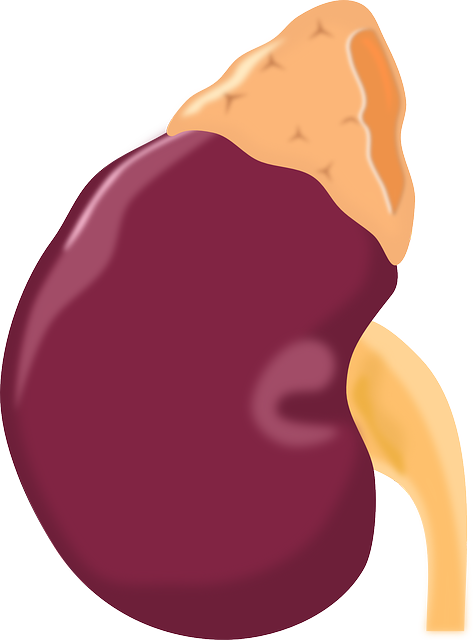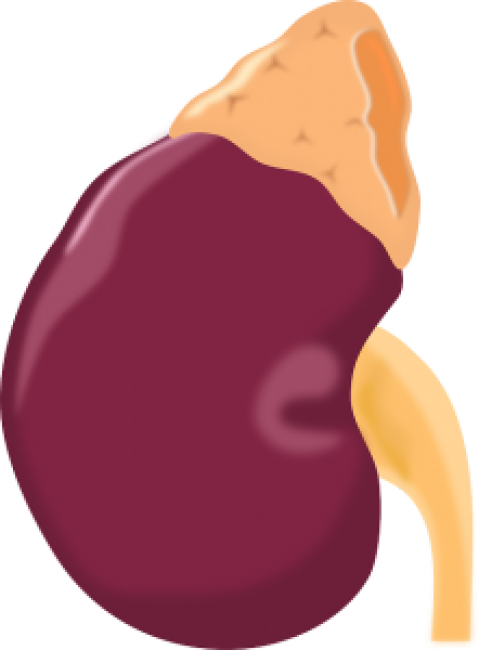Widgetized Section
Go to Admin » Appearance » Widgets » and move Gabfire Widget: Social into that MastheadOverlay zone
U.S. Organ Donation Efforts Produce Record-Breaking Year
The views expressed are those of the author and do not necessarily reflect the views of ASPA as an organization.
By Brandon Danz
January 26, 2016
Ever since the first successful organ transplant in 1954, there has been both a surplus of individuals needing a transplant and a shortage of organs available for donation. That surplus and shortfall has withstood innovations in medical practice, reforms in ethical thinking and advancements in technology – all of which have increased the efficiency of the donation process. Today, more than 120,000 individuals are on organ transplant waiting lists. Each day, around 20 of them will die before a donor match can be made.
 However, 2015 was a record-breaking year for organ donation, with donations increasing six percent over 2014. Within days of each other, the nation’s two largest organ procurement organizations broke records for donations. OneLegacy, serving Los Angeles and the surrounding area, and Gift of Life, serving the Philadelphia region, coordinated a combined 902 successful donations in 2015 – both beating the previous record of 447.
However, 2015 was a record-breaking year for organ donation, with donations increasing six percent over 2014. Within days of each other, the nation’s two largest organ procurement organizations broke records for donations. OneLegacy, serving Los Angeles and the surrounding area, and Gift of Life, serving the Philadelphia region, coordinated a combined 902 successful donations in 2015 – both beating the previous record of 447.
America has been an international leader in organ donation, thanks to efforts of states, the federal government and nonprofit organizations to educate citizens. Organ donor status designations on drivers’ licenses have helped to save thousands of people’s lives. However, even as more individuals decide to be organ donors, medical technology and breakthroughs continue to progress – thereby increasing the population of individuals in need of organs.
Should Organ Donation be Opt-In or Opt-Out?
Few other nations have as many organ donors as does the United States. Spain, however, tops the list, with more donors per capita than any other nation. A major factor contributing to this difference is ethical at its core.
In the United States, patient autonomy is a bedrock of medical ethics and organ donation can only be made with authorization of the patient or his or her guardian or representative. Because of our deep respect for personal autonomy, organ donation here is an opt-in process. Subsequently, many potentially life-saving organs are not recovered. In contrast, Spain substitutes patient/familial authorization with “presumed consent,” meaning it is assumed the patient is an organ donor unless otherwise proven. In effect, this shifts organ donation from an opt-in to an opt-out process.
I recently spoke with Tom Mone, CEO of OneLegacy, and asked him what he thought of Spain’s policy of presumed consent. Could a switch to presumed consent improve organ donations in the U.S.?
“It is an interesting idea that starts with a presumption that organ donation is a social good from which society can benefit. But it completely undervalues the notion of autonomy of the individual, which is a highly valued principle in this country,” said Mone. For that reason, Mone does not support the concept.
The U.S. is composed of individuals of many cultures and faiths and has a strong tradition of respecting personal beliefs. While presuming consent is a very utilitarian goal, it is achieved at the expense of ignoring our deontological duty to the individual. The balance between these two ethical anchors of utilitarianism and deontology has been previously reported on in regard to Emergency Preparedness in Public Administration Times.
Organ Donation Disparities among Minorities
 Recent efforts within the field of organ donation focus on the issue of African Americans. They are more likely to suffer kidney disease than Caucasians, yet are less likely to receive a kidney transplant. According to www.organdonor.gov, more than 30 percent of those currently waiting for an organ donation are African-American. “People of most races and ethnicities in the U.S. donate in proportion to their representation in the population,” reads a statement from their website. “The need for transplant in some groups, however, is disproportionately high.”
Recent efforts within the field of organ donation focus on the issue of African Americans. They are more likely to suffer kidney disease than Caucasians, yet are less likely to receive a kidney transplant. According to www.organdonor.gov, more than 30 percent of those currently waiting for an organ donation are African-American. “People of most races and ethnicities in the U.S. donate in proportion to their representation in the population,” reads a statement from their website. “The need for transplant in some groups, however, is disproportionately high.”
Although organs are not outright matched according to race and ethnicity, successful matching of compatible blood types and tissue markers is more likely if both the donor and recipient are of the same ethnicity. The authorization rate for organ donation among African Americans is 59 percent compared to a Caucasian authorization rate of 85 percent and an all-ethnicity weighted authorization rate of 76 percent.
Historically, some African Americans have been hesitant to sign up as organ donors due to a mistrust in the medical system that stems back to the Tuskegee experiments of the early- to mid-20th century. These experiments victimized African Americans by disregarding their right to informed consent. This has continued to hinder African Americans’ trust in the system.
To combat this, nonprofit organizations have engaged in targeted efforts to educate African Americans on organ donation. These efforts are showing promise, as trends are revealing an increase in organ donation status.
This year promises to be yet another record-breaking year for organ donation. The competition between OneLegacy and Gift of Life for the title “largest organ procurement organization” is already in full swing. Last year, both organizations issued competing press releases and donation tallies in the final days of the year, proclaiming to be the winner. But “at the end of the day, there are no losers in this race,” said Tom Mone, “and the winners are those whose lives have been saved by generous donors and their families.”
For more information on organ donation, or to become a donor, visit www.organdonor.gov.
Author: Brandon Danz, M.H.A., M.P.A., is senior associate at Open Minds and an ASPA member. He is a graduate of the master of health administration program at the Pennsylvania State University and the master of public administration program at Shippensburg University of Pennsylvania. Danz can be reached at www.linkedin.com/in/brandondanz.






Follow Us!